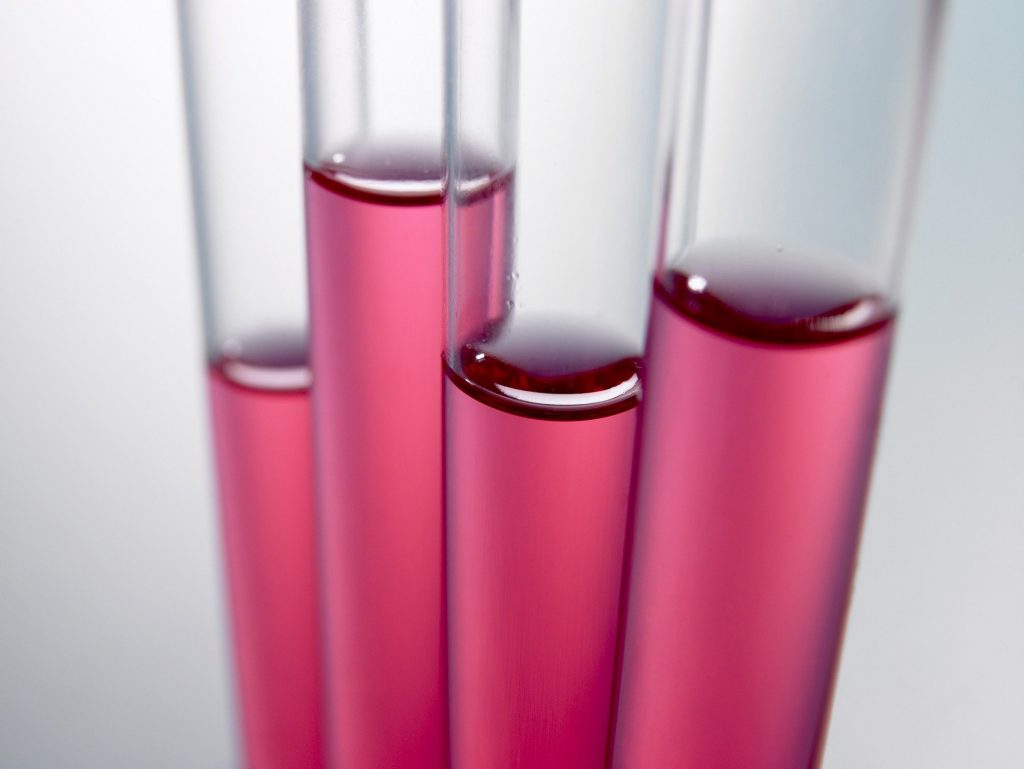Lab tests are an important part of assessing your liver’s health. Each test looks at specific functions of your liver.
Download Lab Tests for Liver Health and Function as a PDF.
General lab tests for liver health
There are many diagnostic tests that provide general information about liver health — or point to specific diseases. Let’s look at some common blood tests for liver health.
AST and ALT (formerly called SGOT and SGPT) levels: If your healthcare practitioner orders a panel of liver function tests (LFTs), it will include these two tests. AST and ALT are chemicals or enzymes found normally within liver cells. They usually leak into your blood very slowly. But, if your liver cells are irritated or damaged, they’ll leak out faster. You’ll have more AST and ALT in your blood. The higher the level, the more injury to your liver.
Babies with Alpha-1 may have higher levels of AST and ALT. But, in most cases, the level returns to normal by the time they’re two years old. Adults with Alpha-1 commonly have elevated levels of AST and ALT. In general, these tests do not suggest major problems of scarring in the liver unless other tests are also abnormal. If the liver injury happens slowly over time, it may go unnoticed.
Alkaline phosphatase (alk phos) and gamma-glutamyl transferase (GGT) levels: These chemicals are normally found within the cells of the bile ducts. These are tubes that drain the bile from the liver to the intestine. A higher level of these chemicals can be a sign of injured bile duct cells.
Platelet count: Low platelet count is often the first abnormal test for Alphas with liver diseases. It’s part of the complete blood count (CBC).
Liver disease can affect many other organs of your body. Your healthcare practitioner may order a test to look at other body systems. This might include:
Alpha-fetoprotein: Some patients with cancer, including liver cancer, have high levels of alpha-fetoprotein in their blood. Since Alpha-1 is a risk factor for liver cancer, this test may help catch it early.
Tests of specific liver functions
While some tests look at your general liver function, the following lab tests look at specific functions of the liver.
Lab tests for synthetic function
These tests usually measure the blood levels of substances that your liver produces.
Albumin: This protein helps move salts and nutrients throughout your body.
INR– this is a measure of blood clotting that can uncover liver problems. Some drugs affect INR, so tell your healthcare practitioner about any drugs you take regularly.
Lab tests for digestive function
Bile from your liver is critical for the normal digestion and absorption of fat-soluble vitamins. Measuring levels of fat-soluble vitamins in your blood is a good test of your liver’s digestive function. It can show if you’re getting the nutrients you need. Healthcare practitioners sometimes look at blood levels of vitamins A, D, and E, especially in children.
Patients with serious liver disease often have low levels of vitamin K, another fat-soluble vitamin. Vitamin K plays a key role in blood clotting. If you are very low in vitamin K, you may have serious bleeding. But, a milder lack of vitamin K may only show up on INR test results.
Lab tests for excretory/detoxification function
Your liver helps your body rid itself of toxins. So, testing your blood for levels of specific waste products can uncover liver problems.
Blood bilirubin: Measuring blood bilirubin levels is a common method used to assess liver function. Your liver eliminates bilirubin through bile.
There are several types of bilirubin in your blood. Levels of certain types will be too high if your liver isn’t functioning normally. Other types of blood bilirubin aren’t related to liver function.
Ammonia: High ammonia levels can be a sign of severe liver disease. When your body digests proteins, it releases ammonia into the blood. Normally, your liver breaks the ammonia into less toxic compounds. But, a failing liver will allow ammonia to move into your bloodstream. If your ammonia levels get too high, you may start showing symptoms. These include unusual sleepiness, changes in thinking and personality, and tremors (shaking).
Other diagnostic tests
Your healthcare practitioner may order other types of tests to get a full picture of your liver health.
CT scans (“CAT” scans) or ultrasounds: These imaging tests create pictures of your liver. They can reveal birth defects, gallstones, and liver tumors. Unfortunately, these tests are not very good at measuring the amount of liver scar or fat unless the changes are advanced.
Endoscopy: An endoscopy can help your healthcare practitioner see abnormal blood vessels associated with portal hypertension. They can also reveal other intestinal problems caused by liver disease. A special endoscopic procedure, called ERCP, can be used to evaluate the bile ducts and even treat gallstones.
During an endoscopy, a technician passes a flexible, lighted tube equipped with a mini TV through your mouth or rectum. Then, they can directly examine your stomach or intestines.
Biopsy: Liver biopsies are used to obtain a sample of liver cells to examine under a microscope. After sedating you, the technician inserts a needle directly into your liver. Then, they remove a sample about the size of a toothpick. Biopsies may be valuable for understanding your liver problems. However, it’s an invasive procedure, and there is a small but real risk of complications.
A liver biopsy is the most accurate way to diagnose Alpha-1 liver disease. Researchers are studying other kinds of tests to see if they can take the place of liver biopsy.
For more in-depth information on this topic, please visit the Big Fat Reference Guide (BFRG). If you are enrolled in AlphaNet’s Subscriber Portal, you can access the BFRG here.
Download Lab Tests for Liver Health and Function as a PDF.

